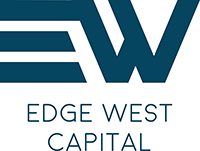1. What is a syndication?
Simply put, syndication is crowdfunding for investments. It allows investors to pool their capital to passively acquire and manage apartment communities (without having to fix toilets or field tenant complaints). The syndicate consists of a General Partner (also referred to as a Sponsor) and Limited Partners (investors).
A General Partner (see below) is an individual or, more commonly, a group who spearheads the acquisition process and manages all decisions related to the asset (construction, asset management, financing, etc.). They share in a minority share of the profits based upon specific criteria outlined in each investment.
As a Limited Partner, you can participate passively in the partnership which allows you access to the benefits of real estate investing without the hands-on participation, time commitment, or large capital outlay needed to acquire real estate alone. Syndication provides an opportunity to diversify your portfolio and generate additional income streams. To be clear, as a Limited Partner you are not individually on title. You become a member of the entity who is, thus allowing all proportionate benefits to be passed through to you, the same as you’d be entitled to if you owned the asset individually.
2. How is a syndication structured and what fees am I paying?
A syndication consists of General Partners (Sponsors) and Limited Partners (passive investors). As a Limited Partner you have limited liability. The roles are responsibilities are outlined here.
Typically, the General Partner is compensated for their active role in two ways:
- Acquisition fees: this is a one-time fee (1-2% of the purchase price) to compensate the General Partner for sourcing and executing the transaction
- Profit sharing: this participation (sometimes referred to as the co-promote) typically ranges between 20-30% of profits (Limited Partners receiving the balance). It is worth noting, this participation is specific to each investment and not the same in all scenarios. For example, many investments have a preferred return (e.g., 8% per year) which must be met and distributed to the Limited Partners before the General Partner is eligible to participate in profit sharing.
Additionally, there is an asset management fee (1-2% of gross rent) which is not directly tied to the General Partner but often is (it can also be outsourced to a 3rd party).
Although your return is not guaranteed, the entity’s structure and details of the transaction itself are important as they can help to reduce your investment’s risk.
3. What is a typical minimum amount to invest?
The minimum investment amount ranges from $25,000 to $100,000+ for each syndication.
4. Can I use my IRA or 401K to invest?
Yes, you can use your self-directed IRA (“SDIRA”) or you can convert an existing IRA or 401(k) to a SDIRA to invest in many syndications, including ours. We advise consulting a CPA to understand if it applies to your situation. There are several implications to consider, such as unrelated business income tax (“UBIT”) or unrelated debt financing income (“UDFI”). We are happy to share our thoughts on what might be worth taking into account when discussing with your advisor (contact us).
5. How often do you make distributions?
Typically, quarterly or monthly but each syndication has a specific strategy based on the specific value-add components of the asset.
6. What are the typical returns?
At Edge West Capital, we look for an 8%+ cash-on-cash return with an IRR north of 15% (doubling the initial value their investment over a typical 5-7 year hold). If you’d like to hear more about our criteria and investment process, contact us here (contact us).
7. When will I get money back?/What is the exit strategy?
Typically, at the time of sale or refinance (which would typically provide a return of capital event, which would include some or all of your principal). For Edge West Capital deals, the hold period will typically range between 5-7 years. This is further outlined in each specific acquisition’s business plan.
8. Do I need to be an accredited investor?
This depends on the structure of the entity. Edge West Capital structures theirs (506b) so it is eligible to work with Accredited Investors and up to 35 non-accredited investors (Sophisticated Investors). Sophisticated investors must have knowledge and experience in financial and business matters to make them capable of evaluating the merits and risks of the prospective investment. To qualify as an Accredited Investor, you must either have:
- an earned income that exceeded $200,000 (or $300,000 together with a spouse) in each of the prior two years, and reasonably expects the same for the current year, or
- has a net worth over $1 million, either alone or together with a spouse (excluding the value of the person’s primary residence). Please see the SEC guidelines for a more detailed description.
It should be noted, the General Partner must have a relationship with each investor prior to the offering for the investor to be eligible to participate. To find out if you are qualified under this definition, contact us.
9. What are my greatest risks?
As in all investments, including real estate, unforeseen factors can impact the investment. While Limited Partners liabilities are limited to their principal investment (they are not individually listed on the title or loan documents), there is risk of the asset underperforming and the business plan not being executed effectively. Moreover, external factors (macro-economics, force majeure, interest rates, etc.) may negatively contribute to performance.
10. What are the next steps?
Educate yourself, establish your investment goals, and engage with Sponsors. We can help with all three. Below is more information on the benefits of multifamily investments, and we can point you in the direction of other resources. If you don’t already have investment goals, we can help with that (i.e. how much do you want to invest, when do you expect returns, what tax benefits are you seeking, etc.). Start the conversation early

